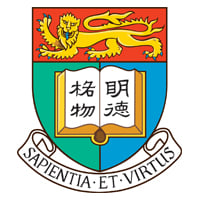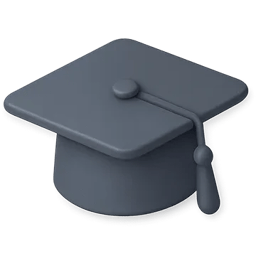Before Hong Kong: My Academic Pathway
A few years ago, if you had told me that I would be studying in Hong Kong, I would not have believed you. My journey began in Pakistan, where I studied my O-levels and A-levels. I was extremely interested in both physics and mathematics. Like most students, I had ambitious dreams and applied to foreign universities immediately after my A-levels. I had mostly applied to U.S. universities, and the results weren’t pretty. I had been rejected from nearly thirty universities, including top U.S. schools that had initially been my dream.
After that, I began my studies at the National University of Sciences and Technology (NUST), where I began studying physics. Unfortunately for me, I found the curriculum less challenging than I had hoped. But I hadn’t let my earlier rejections deter me since I kept applying to other universities throughout my first year at NUST.

Why Hong Kong? A Chance Encounter
Interestingly, Hong Kong wasn’t even on my radar at first. I didn’t know much about it or its universities. I don’t think I had even considered studying in the China region as an option. My decision to apply to the University of Hong Kong (HKU) was purely by chance- a senior, studying medicine, recommended it. On his advice, I applied without expectations or much research.
To my surprise, I got an offer. That’s when I really started exploring what Hong Kong had to offer.
I began finding out things about HKU that would encourage me to study at it later on. It had one of the strongest physics programs in Asia, and its global ranking was honestly very impressive. After getting in touch with more people at KHU, I realized the opportunities offered were too good to miss. I wanted to restart my undergraduate journey again, and HKU seemed like the perfect place to do so. So, after serious consideration, I took the leap.
The Application Process and Requirements
The application process for HKU was somewhat different from U.S. universities. HKU did not have this as a mandatory requirement when I applied. Instead, I applied through the Common App, only to later find out that I had to complete my application through HKU’s own portal. I found out this after emailing them on an update about my application in which they informed me it wasn't complete.
I submitted my O-level and A-level results—3 As and 7 A*s in O-levels. The mandatory subject requirements in O Level is 8, but I had taken two extra. I had received 4 A*’s in A-levels (Further Mathematics, Mathematics, Physics, and Computer Science). Along with that, I provided letters of recommendation, my extracurricular activities, and a personal statement.
My extracurriculars were mostly academic, but I was also involved in a financial services society at my highschool, Nixer, where I worked my way up from an intern to Chief Marketing Officer. I also was one of the founding members of COALI, a community for O/A Level students that offered advice and help to other students. Apart from that, I participated in the international physics olympiad in 2021.
The essay portion of the application focused on my passion for physics and mathematics, how I had explored these fields, and the lessons I had learned from both academic and non-academic pursuits. I also include my involvement in community-building activities, as admissions committees always value a well-rounded applicant.

Scholarships and Financial Planning
One of the biggest concerns with studying abroad is financing. As an international student, it would always be somewhat of a challenge. Fortunately, I received a full-tuition scholarship from HKU, which covered 100% of my tuition fees. However, living expenses weren’t included, so I had to plan my finances carefully.
A great feature of HKU’s scholarship system is how transparent it is. When applying, if you select your intended field of study and educational background (such as A-levels), the portal generates a list of scholarships you can be eligible for. Most of these scholarships automatically consider you without requiring a separate application—if you meet the eligibility criteria, you are considered as soon as you submit your regular college application. However, for 1-2 competitive scholarships, you may need to submit a separate application. The scholarship I received, which covered full tuition, required a separate application.
It was amazing to see all the scholarships I was eligible for in one place without the stress of applying separately for each one. This system made it much easier to understand my financial options upfront and plan accordingly.
Initially, my parents supported me financially while I settled in, mostly living costs. However, by the end of my first year, I secured a summer research opportunity under HKU’s physics department, which helped me become more financially independent. Over time, I transitioned into supporting myself through internships and part-time tutoring.
Another great thing about Hong Kong is that even first years can find opportunities if they know where to look.
Adjusting to Life in Hong Kong
Adapting to Hong Kong was, surprisingly, not very difficult for me- something I find funny, considering how big of a change it was on paper. Of course, it’s different for everyone, but I think a few factors made the transition smoother in my case. For one, it wasn’t my first time living away from home. I had already moved from Karachi to Islamabad for my studies at NUST, so I was somewhat used to being in a new environment. That first move within Pakistan might not sound like a big deal, but it helped build a sense of independence that made moving abroad a little less difficult.

That said, adjusting to Hong Kong did come with its own set of challenges- mainly the fast-paced lifestyle and the cultural and language differences. But even those didn’t hit me as hard as I had expected. I got used to the city’s rhythm fairly quickly, I think, and I think Hong Kong’s efficiency and structure played a big role in that.
Work and Internship Opportunities
Hong Kong’s policies regarding student work were initially quite restrictive- international students could only work part-time within the university during the semester. However, these restrictions were later relaxed, allowing students to work externally with a No Objection Letter (NOL) from their faculty and the immigration department. Because of that change, I took up tutoring and it helped me to gain more financial independence.
Apart from part-time jobs, HKU provides plenty of research and work opportunities. Since my passion lies in physics and mathematics, I actively participated in summer research programs, which not only helped my financial situation but also strengthened my academic portfolio.
The Road Ahead
As of now, I am in my third year at HKU, majoring in physics and mathematics. If all goes according to plan, I’ll graduate in 2026. Looking back, my journey has been anything but straightforward. From facing rejection after A-levels from countless universities to restarting my undergraduate degree in Hong Kong, it has been a journey to say the least.
For anyone considering studying abroad, my advice would be to keep your options open. The U.S. isn’t the only destination for quality education- places like Hong Kong offer world-class universities with generous scholarships and a dynamic environment. Sometimes, the best opportunities come from the most unexpected places.
If I hadn’t taken my senior’s advice and applied to HKU, I wouldn’t be here today. So if you’re debating whether to apply somewhere new, just take the chance. You never know where it might lead you.




